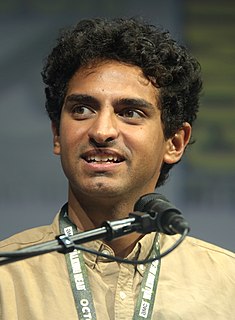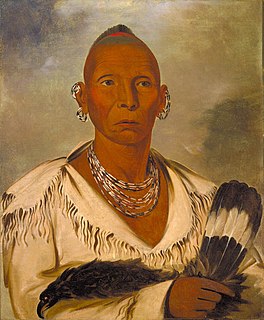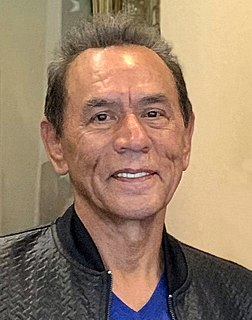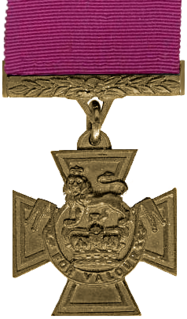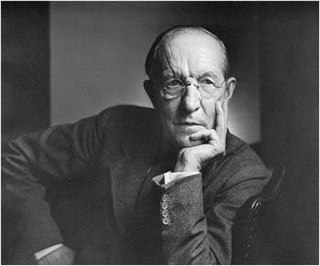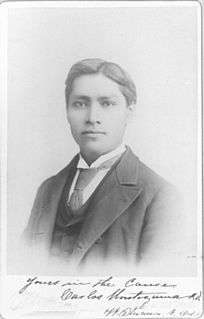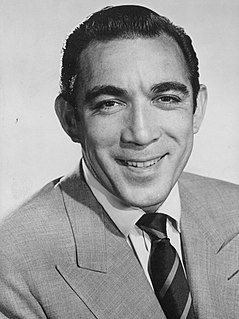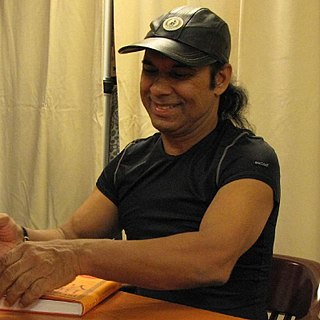A Quote by Sherman Alexie
My career means, if you're a non-Indian writing about Indians, at least there's one Indian in your rearview mirror.
Related Quotes
We need to give out portrayal of ourselves. Every non-Indian writer writes about 1860 to 1890 pretty much, and there is no non-Indian writer that can write movies about contemporary Indians. Only Indians can. Indians are usually romanticized. Non-Indians are totally irrepsonsible with the appropriation of Indians, because any time tou have an Indian in a movie, it's political. They're not used as people, they're used as points.
The white men despise the Indians, and drive them from their homes. But the Indians are not deceitful. The white men speak bad of the Indian, and look at him spitefully. But the Indian does not tell lies; Indians do not steal. An Indian, who is as bad as the white men, could not live in our nation; he would be put to death, and eat up by the wolves.
We, as Indian tribes, should be able to prosecute non-Indians on tribal lands. But on Indian land, we have no ability to prosecute anyone but another Indian. American Indians having status as a foreign nation is good for us, but it's not good in some ways if we don't have the jurisdictional power that the federal government claims.
There aren't a lot of alternative roles for Indian actors. I think we've fallen short of portraying Indians in the media. We don't need to make another Dances With Wolves, because it's not an Indian movie. When Indians portray themselves, then we have a different perspective. I've been asked about making period pieces but I've never read one that wasn't about guilt, and I'm not trying to make a guilt film.
In fact, George Washington had been an Indian fighter since the French and Indian War. And a lot of folks, particularly in the red states, the Southern states that had suffered a number of Indian depredations wanted to remove all the Indians to Canada. Let them go with the English. And Washington said, well, you can try , but better, he said, more expedient to negotiate treaties with them because, and again this is what the founders believed to a man, Indians are a vanquished race. They won't be here two to three generations.
Before AIM, Indians were dispirited, defeated, and culturally dissolving. People were ashamed to be Indian. You didn't see the young people wearing braids or chokers or ribbon shirts in those days. Hell, I didn't wear 'em. People didn't Sun Dance, they didn't Sweat, they were losing their languages. Then there was that spark at Alcatraz, and we took off. Man, we took a ride across this country. We put Indians and Indian rights smack dab in the middle of the public consciousness for the first time since the so-called Indian wars.


